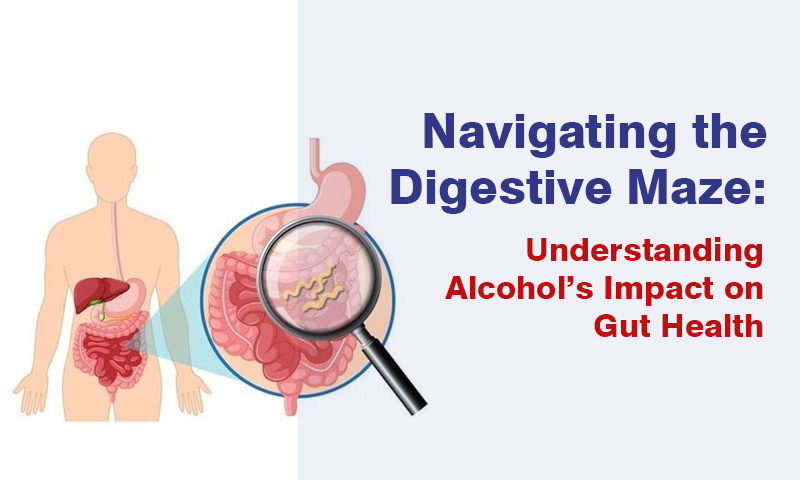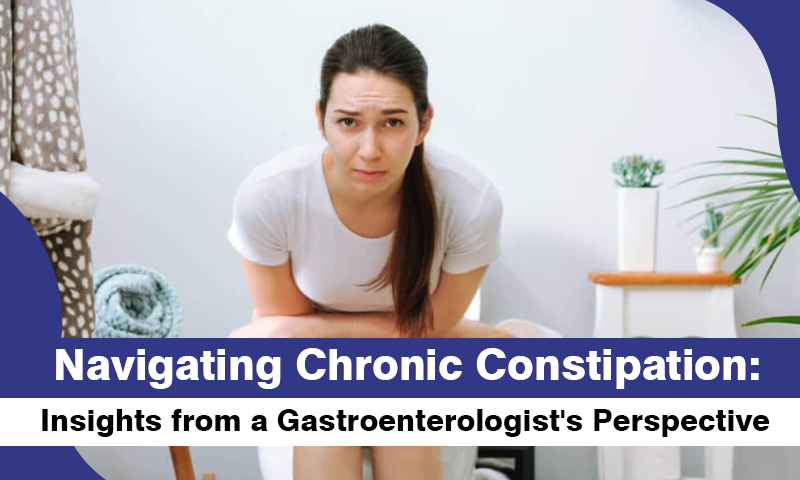Navigating the Digestive Maze: Understanding Alcohol’s Impact on Gut Health

Ensuring Digestive Wellness: A Gastroenterologist’s Guide to Preventing Food Poisoning
April 21, 2024
Unlocking Digestive Vitality: The Impact of Exercise on Gastrointestinal Health
May 15, 2024In today's fast-paced world, unwinding with a drink or two is a common ritual for many. However, what often gets overlooked are the effects of alcohol on our digestive system. From the first sip to the last drop, alcohol can significantly impact the health of our gut, with consequences ranging from mild discomfort to severe diseases like liver cirrhosis and gastrointestinal cancers. In this comprehensive guide, we'll delve deep into the intricate relationship between alcohol consumption and digestive health, shedding light on the importance of moderation and responsible drinking.
The Digestive System: A Complex Network
Before we delve into the effects of alcohol, let's take a moment to understand the intricacies of our digestive system. Comprising organs like the stomach, liver, pancreas, and intestines, this remarkable network is responsible for breaking down food, absorbing nutrients, and eliminating waste. Each organ plays a crucial role, working in harmony to ensure optimal digestion and nutrient absorption.
Unveiling the Impact of Alcohol
Alcohol's journey through the digestive tract begins in the stomach, where it can irritate the lining, leading to inflammation and discomfort. As alcohol makes its way to the small intestine, it interferes with the absorption of essential nutrients, depriving the body of vital vitamins and minerals. Meanwhile, the liver bears the brunt of alcohol metabolism, leading to the accumulation of fat and, over time, potentially progressing to more serious conditions like fatty liver disease and cirrhosis.
Understanding the Risks: From Gastritis to Cancer
Regular and excessive alcohol consumption is associated with an increased risk of gastrointestinal diseases. Conditions like gastritis and peptic ulcers can arise due to alcohol's corrosive effect on the stomach lining. Gastroesophageal reflux disease (GERD) is another common complaint among heavy drinkers, characterized by persistent heartburn and acid regurgitation. Perhaps most concerning is the link between alcohol and gastrointestinal cancers, including those of the esophagus, stomach, and colon, underscoring the importance of moderation in alcohol consumption.
Liver Health: The Epicenter of Alcohol-Related Damage
The liver, our body's detox powerhouse, bears the brunt of alcohol metabolism. When consumed in excess, alcohol overwhelms the liver's capacity to process it, leading to the accumulation of fat and inflammation. This initial stage, known as fatty liver disease, can progress to more severe conditions like alcoholic hepatitis and cirrhosis, where irreversible scarring impairs liver function. Recognizing the early warning signs and seeking timely intervention is crucial in mitigating the long-term consequences of alcohol-related liver damage.
Striking a Balance: Tips for Maintaining Digestive Health
While the occasional drink may not pose significant harm, moderation is key when it comes to alcohol consumption. Adopting a balanced diet rich in fiber, fruits, and vegetables can support digestive health and mitigate the negative effects of alcohol. Regular exercise, stress management techniques, and staying adequately hydrated can also promote overall well-being. For those struggling with alcohol dependence or experiencing digestive issues, seeking professional help is imperative for personalized guidance and support.
Serving Food Safely:
As patients prepare to present their culinary creations to eager diners, caution must prevail. Hot foods should retain their steaming allure, while cold delicacies should maintain their refreshing chill. Prompt refrigeration of leftovers is non-negotiable, as it forestalls the proliferation of harmful microbes.
AIn conclusion, understanding the impact of alcohol on digestive health is crucial for making informed choices. By recognizing the risks associated with excessive alcohol consumption and embracing moderation, we can safeguard our digestive system and promote long-term well-being. Whether it's enjoying a social drink with friends or unwinding after a long day, let's prioritize our gut health and strive for a balanced approach to alcohol consumption.
Take charge of your digestive health today! Consult with Dr. Chirayu Chokshi, a trusted gastroenterologist, for personalized guidance and expert care. Visit Gastro Vadodara to schedule your appointment and explore a range of informative resources on digestive health, including articles on Understanding Ulcerative Colitis and Gallstones. Let's work together towards a healthier, happier gut!
References:
- National Institute on Alcohol Abuse and Alcoholism. (2021). Alcohol’s Effects on the Body.
- American Liver Foundation. (2021). Alcohol-Related Liver Disease.
- National Institute of Diabetes and Digestive and Kidney Diseases. (2021). Digestive Diseases Statistics for the United States.
- World Cancer Research Fund. (2021). Diet, Nutrition, Physical Activity and Cancer: A Global Perspective.


